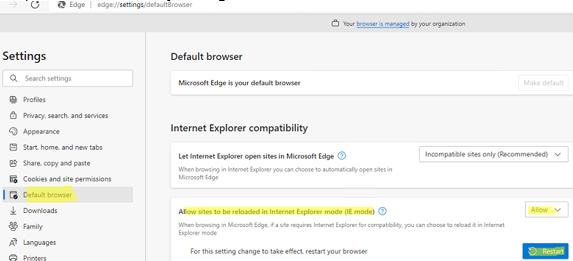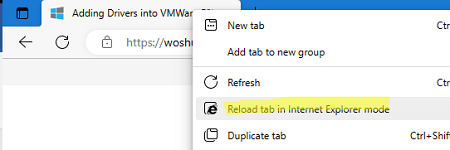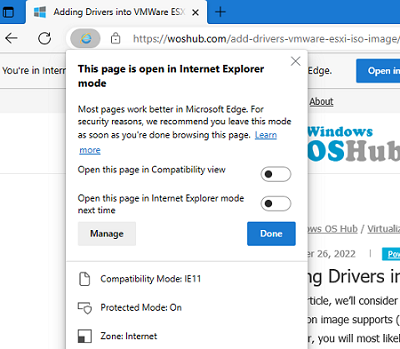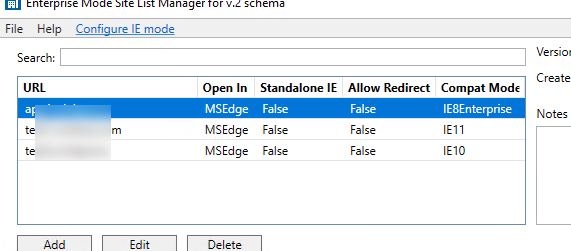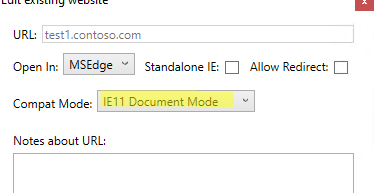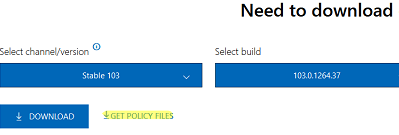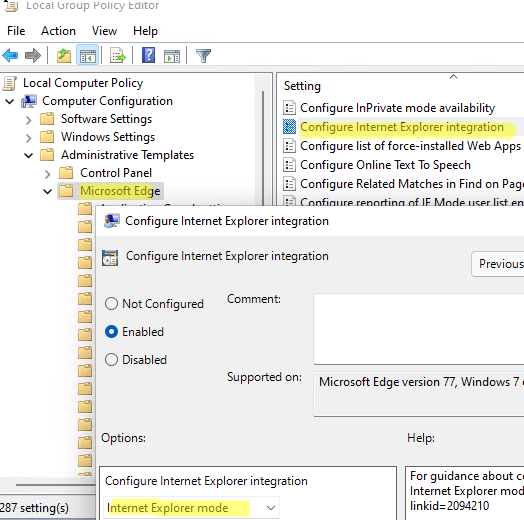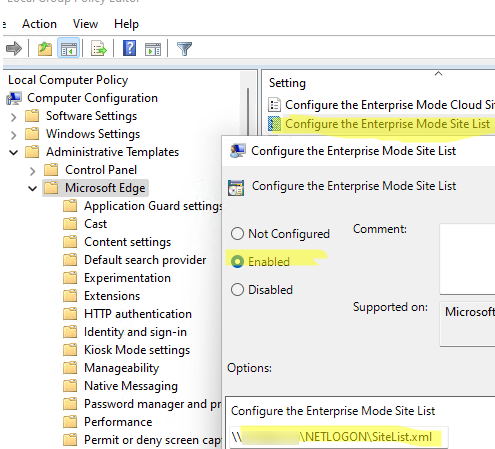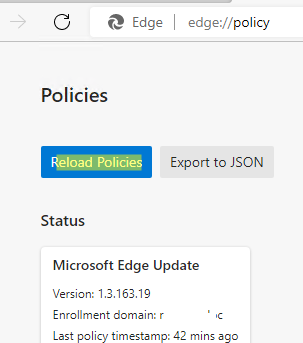Internet Explorer compatibility mode (IE Mode) in the Microsoft Edge browser enables users to view legacy websites as if they were opened in classic Internet Explorer 11. This feature may be useful for users of corporate networks with legacy websites (portals) that were developed or adapted for the legacy IE engine and don’t work correctly on chromium-based browsers. This article shows how to use IE mode in Edge on Windows 10 or 11.
How to Enable the IE Mode in Microsoft Edge on Windows 10 and 11?
In IE Mode, Edge users will see websites as if they were opened in Internet Explorer 11 (Trident MSHTML engine is used for rendering). This means that a user doesn’t need to install an additional browser on their computer to view legacy websites. In this mode, Edge replaces its user agent and presents itself as IE 11. ActiveX, COM, Java, Internet, and all the other components that have been developed for IE are available. You can set a list of websites that Edge should always open in IE Render mode manually or by using a GPO.
In order to configure the Internet Explorer compatibility mode in Microsoft Edge on Windows 11:
- Start the Microsoft Edge;
- Open the browser settings;
- Go to the Default browser section (
edge://settings/defaultBrowser); - Change Allow sites to be reloaded in Internet Explorer mode (IE Mode) to Allow and restart your Edge browser;
- Now you can view any website in IE compatibility mode. To do it, right-click the tab and select Reload tab in Internet Explorer mode option from the menu;
- The IE icon appears next to the website name in the navigation bar. If you click it, you will see the message:
This page is open in Internet Explorer Mode.
You can create a list of websites that you always want to open in IE mode. Add their URL addresses in edge://settings/defaultBrowser -> Internet Explorer Mode Pages -> Add.
Configure Internet Explorer Mode in Microsoft Edge Using GPO
You can enable and configure the IE Mode in Microsoft Edge with Group Policies.
First, you need to create a list of websites that you want to open in IE compatibility mode.
- Download the Enterprise Mode Site List Manager v2 (https://www.microsoft.com/en-us/download/details.aspx?id=49974);
- Install
EMIESiteListManager.msi; - Run the Enterprise Mode Site List Manager. Add a list of websites you want to open in IE compatibility Mode. Save the list as SiteList.xml;
- Do not specify the http:// , https:// protocol in the URL;
- Do not use wildcard characters, regexp, etc;
- When adding a new address, always specify that it must be opened in Edge (Open in: MSEdge);
- In the “Compact Mode” section, you can specify the version of IE in which you would like to open the site (IE11, 10, 9, 8, 7, 5 are available);
- You can open URL addresses of the same website in the compatibility mode with different Internet Explorer versions.
Now you can configure the IE mode using GPO.
- First, download and install administrative Group Policy templates for MS Edge (https://www.microsoftedgeinsider.com/en-us/enterprise). Select the current build and platform, then click Get Policy Files. Download the archive and extract the ADMX file (msedge.admx) to
C:\Windows\PolicyDefinitions;You can find out more about how to install the GPO ADMX templates in Windows here. In an Active Directory domain, you can copy ADMX files of GPO templates to the Central Store to make them available on all computers. - Then open the Group Policy Editor (run the gpedit.msc on a standalone computer, or use the
GPMC.mscconsole to configure the IE mode on multiple computers in your AD domain); - Navigate to Computer Configuration -> Administrative Templates -> Microsoft Edge;
- Enable the Configure Internet Explorer Integrations item and set its value to Internet Explorer Mode;
- Then enable the Configure the Enterprise Mode Site List option. Set the path to the file with the list of websites (SiteList.xml) you created earlier (you can use a UNC path). I placed the SiteList.xml to the NETLOGON directory on the domain controller (
\\woshub.com\NETLOGON\SiteList.xml). Also, you can copy the file to user computers using GPO (the path to the local file is specified in the following format:file:///c:\\windows\\sitelist.xml) or use an HTTPS path:https://web1/sites.xml. - Navigate to
edge://policy/and reload Edge policies; - Make sure that the target intranet site is always opened in IE compatibility mode.
